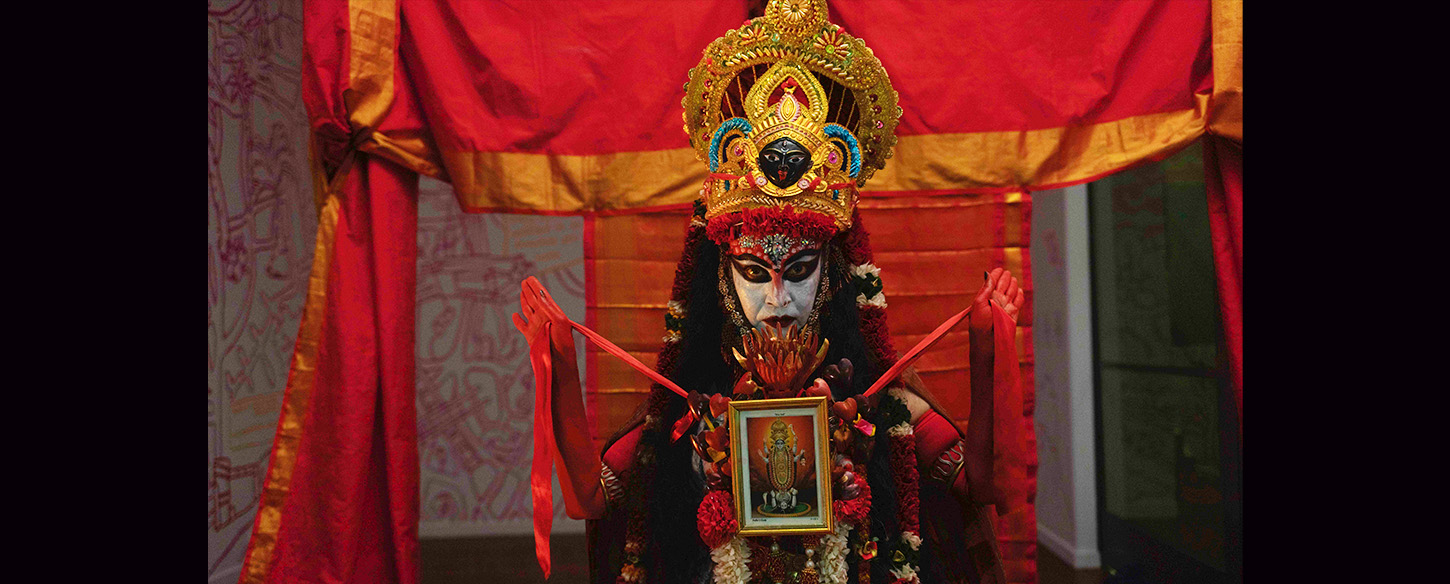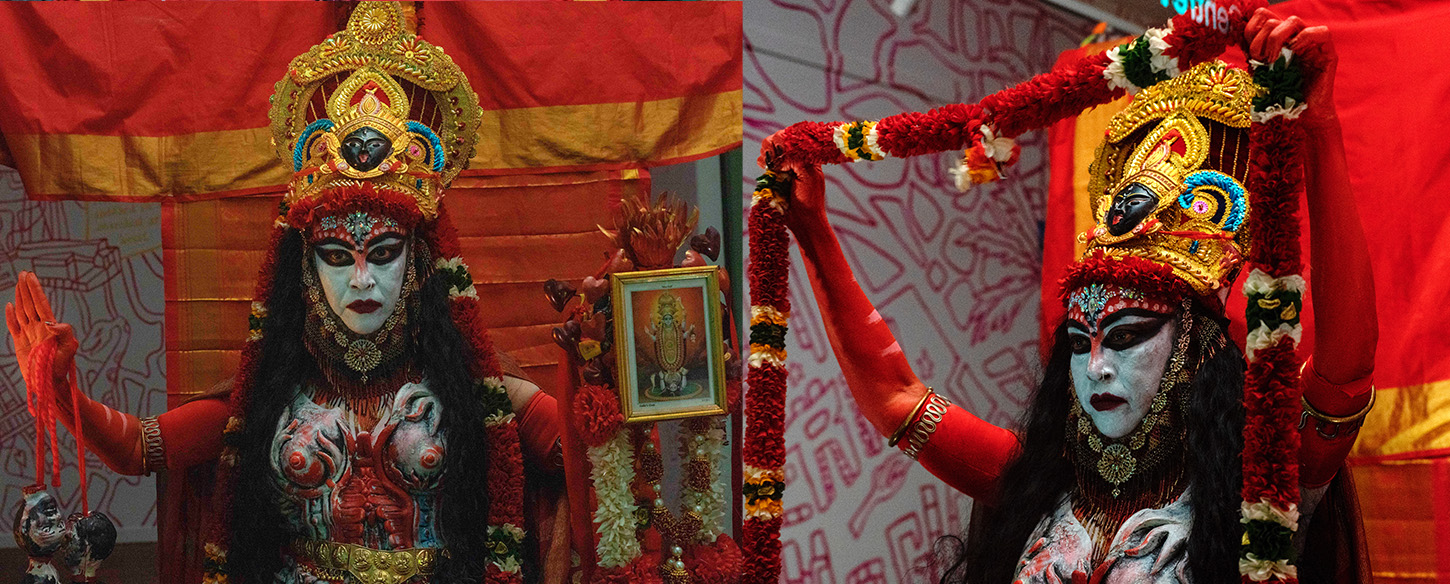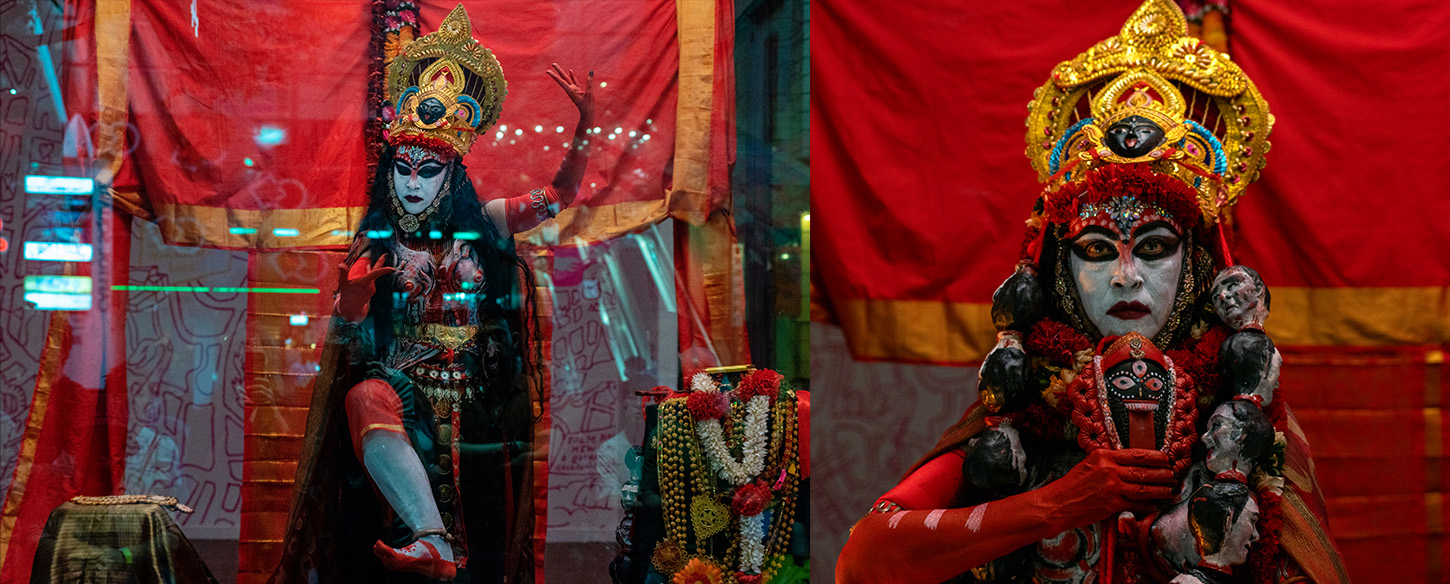In the face of ephemerality and its erasures, it is consoling to reflect that the richness and power of Rakini Devi’s Inhabiting Erasures emanates not only from three decades of practice, but sustainingly from a several thousand-year-old cultural heritage which the artist perpetuates and idiosyncratically opens out, defying transience. Her art is born of a culture often beyond my comprehension, but that’s not say it’s beyond meaning as Devi’s imagery incorporates itself indelibly into my own night work, where art is most deeply felt. This is art that is at once modern (full of self-recognition, as Bourgeois would have it), powerfully ancient (felt like a shock of the old) and compelled by compassion that both respects and challenges tradition.
Keith Gallasch April 2021
https://www.realtime.org.au/rakini-devis-nightwork-the-performer-as-visual-artist/
Born and raised in Kolkata, Rakini Devi has spent most of her artistic journey engaging with feminist issues, be it dowry deaths in India or rampant femicide in Central and South America. Her newest Sydney exhibition ‘Inhabiting Erasures’ is inspired by Hindu goddesses, and displays never-before-seen journal paintings, light projections, meaningful performances and deeply informed statistics relating to the oppression of women. Her profound awareness of global atrocities against women across all classes of society, coupled with a passion for religious female iconography, has transformed her into an art activist well-equipped to comment on the issue through a divine lens.
Bageshri Savyasachi 2021
https://www.indianlink.com.au/arts/visual-arts/an-artistic-feminist-protest-by-rakini-devi/
This might be Kali, the mother her many followers believe her to be, and whom we finally meet fully face to face in the last scene in a blaze of glory, framed by a huge image of an eternally deep cave — not black, but a soft haven, a macrocosm seemingly made from a close-up of gently ruffled cloth and textured with a lovely half-melody. Urban and atheist as I am, I might not believe in Kali, but I welcome the emotionally complex connotations that swirl about her and acknowledge that for a secular society she has the power to evoke the sheer scale of the epic recurrency, individual and social, of the glory and the trauma that constitute life and death. Rakini Devi has given me a Kali to keep and reflect on.
Keith Gallasch 2017
https://www.realtime.org.au/urban-kali-face-to-face-with-kali/
Link to all Rakini Devi reviews in exegesis appendix: Urban Kali, From sacred dance to secular performance
Rakini Devi: Diasporic Subject and Agent Provocateur, Cambridge University Press, Theatre Research International. Helena Grehan, 2003.


